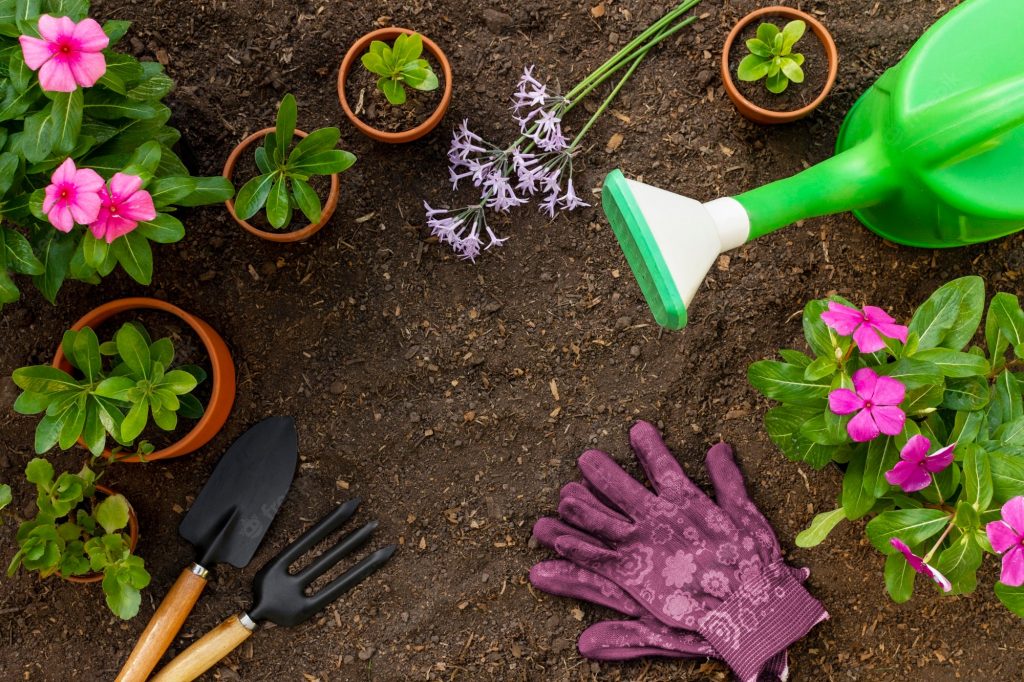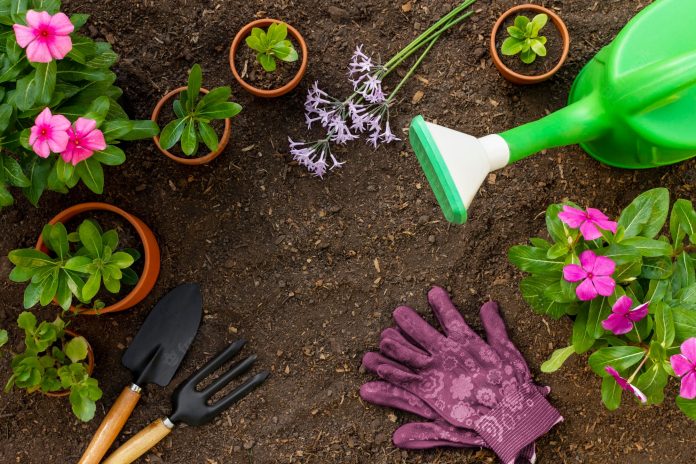Have you always wanted a beautiful bed of roses but just aren’t quite sure how to make them grow? If so, you may be in need of some great organic gardening tips. Whether you’re trying to grow flowers or rows of onions, these tips can help you get started with an all-natural organic garden today.
If you live in an area with clay soil, coat your shovel or gardening trowel with flour or car wax before you start digging your garden. This will prevent soil from sticking to the blade of your shovel, making your work much easier. It also lengthens the life of your shovel by preventing rust.
Read the packages your seeds came in! Every seed is different. Some can be planted year round while others can only be planted at certain times. Some seeds need ten hours or more of sun a day, and others need much less. Before you impulse buy a seed package based off of the picture, take the time to know what you are getting into.

When growing potatoes, make sure you choose a variety with a starch content that corresponds with the way you’ll be cooking them. The more starch there is in a potato, the drier and flakier it will be when cooked. Potatoes that are good for mashing have approximately 7% starch. These potatoes cook quickly and retain a high moisture content, so they’re easy to mash. Baking potatoes have a starch content between 15% and 18%, and frying potatoes have the highest level at 22%.
You can use natural waste items around your home to benefit your plants. For example, plants that prefer high acidic soil love a mulch mixed with coffee grounds. Cinnamon can be used as a natural fungicide for potted plants. And of course, there are the myriad benefits of a home compost pile.
If you spend a lot of time taking care of your garden, get yourself a gardening wheelbarrow. You can put all the gardening supplies that you need on the wheelbarrow and easily push it around to various parts of your garden. This will save you time from looking for various supplies every time you need to tend to your garden.
When you are planning where to put your garden, choose a location that allows it to get plenty of sun. If you place it in the shade, you will be restricting the types of plants that you are able to grow. For example, tomatoes need a lot of sunshine to thrive and a shaded area just won’t work for them.
A very important step to remember when planting a rose is to use soil, mulch or compost to mound at the base of the plant all the way to the first canes. Mounding this way will protect the plant until new growth emerges and new feeder roots have grown to absorb water for the plant.
If you have a cut on your hand, take the time to make sure it is either healed or completely covered before you put your hands in the soil. If grime gets into the cut, it could become infected. You can completely seal the area using some of the great bandages that are now available.
Protect your seeds from fungus with natural products. You can use milled sphagnum moss to protect all your plants. If your seeds need light to grow, sprinkle the moss first and then place your seeds. This solution is much better than any chemicals you can find in a store and will protect your seeds efficiently.
Location is very important to organic gardening. Your garden should be in an area that will get at least ten hours of sunlight during the summer. Prior to starting your garden, make sure that your location does not have any large obstructions that will cast shadows and block the sun. Plants need an adequate amount of sunlight to live.
If your organic garden uses containers, you may need to swap seedlings to larger containers as they outgrow them. When you do this, make sure to handle the seedlings by the leaves and roots. To be more specific, you should avoid touching the stems as they are extremely fragile and can be easily damaged. After you have swapped containers, it is recommended to water the roots as this will help them merge with their new environment.
Keep track of your organic garden’s progress in a gardening journal. Make note of everything – the dates you plant, the dates you fertilize, pests that arrive, which repellents work, when you begin harvesting, and how fruitful your garden is. This information will be valuable to you as you plan your garden in the years ahead and will help you to be a successful gardener.
The great thing about these tips is that they deal with organic gardening in general. So it doesn’t matter if you’re planning on growing fruits, vegetables, trees, bushes or flowers, the tips in the above article will help you get started. Your thumb won’t turn green overnight, but you will begin to learn how to go organic.


